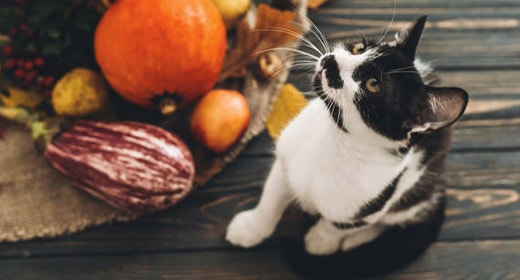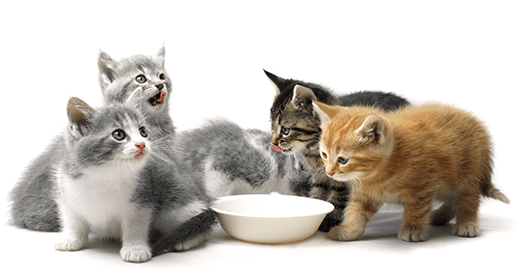

If you are considering an all-natural, holistic, or organic kitten food, here are some facts you may not be aware of. Currently the pet food market is experiencing a push toward “all-natural,” “holistic,” and “organic,” the significance of which is still to be determined. The question becomes, is there an actual benefit to an “all-natural,” “holistic,” or “organic” diet?
AAFCO defines “natural” as “…derived solely from plant, animal, or mined sources… not containing any additives or processing aids that are chemically synthetic except in amounts as might occur unavoidably in good manufacturing practices.”
Loosely interpreted, this definition could include a range of “natural” products, including tobacco or any other naturally grown drug or substance.
None of these “all-natural” products are considered healthy additives for your kitten. So it is apparent that regulatory work is needed to define the true beneficial use of all-natural. Also noteworthy is the fact that nowhere within the definition are plant and animal by-products excluded. Not only are they “natural,” but they contribute valuable nutrients as ingredients in human and animal foods.
The term “holistic” kitten food is not distinctly defined by any of the regulatory agencies as a classification for food. This is particularly noteworthy in kitten food, because all diets sold commercially must be “Complete and Balanced” for a designated age or activity level. Or in other words, be a “holistic” dietary approach.
Organic kitten food is labeled “organic” by a government-approved certifier who inspects the farm where the food is grown to make sure the farmer is following all the rules necessary to meet USDA organic standards. Whether organic kitten food provides any additional safety or nutritional value is still being debated by experts. Even the USDA refuses to take a position. It is also important to note that there are no strict requirements for organic kitten food right now.
There is tremendous confusion surrounding the significance of all-natural, holistic, and organic kitten food terms. Widespread use without substantiation has forced several consumer groups to become involved; this will result in more education and clarification as to what these terms really mean to consumers. But, for now usage of these terms requires your consideration.


Confused by the ingredient list on your kitten’s food? You’re not alone. Marketing pet foods that have “human-grade ingredients” is becoming commonplace. While appealing to many pet owners, it is important to be aware that the term “human grade” has no legal definition and is used primarily for marketing purposes.
Foods, typically meats, are labeled either as “edible” or “inedible, not for human consumption.” Once a food leaves the human food chain, even if it is of outstanding quality, it has to be labeled “inedible, not for human consumption.” Therefore, meats used in pet food must be labeled as “inedible,” regardless of the source or quality of the meat. The only way to make a pet food with ingredients deemed “edible” is to never let the meat leave the human food chain and actually manufacture the pet food in a human food facility and transport it using human food trucks. Therefore, advertising a product as containing “human-grade ingredients” is untrue if it is not manufactured in a human food facility. However, just because a pet food isn’t marketed as being “human grade” does not mean that the ingredients are poor quality.